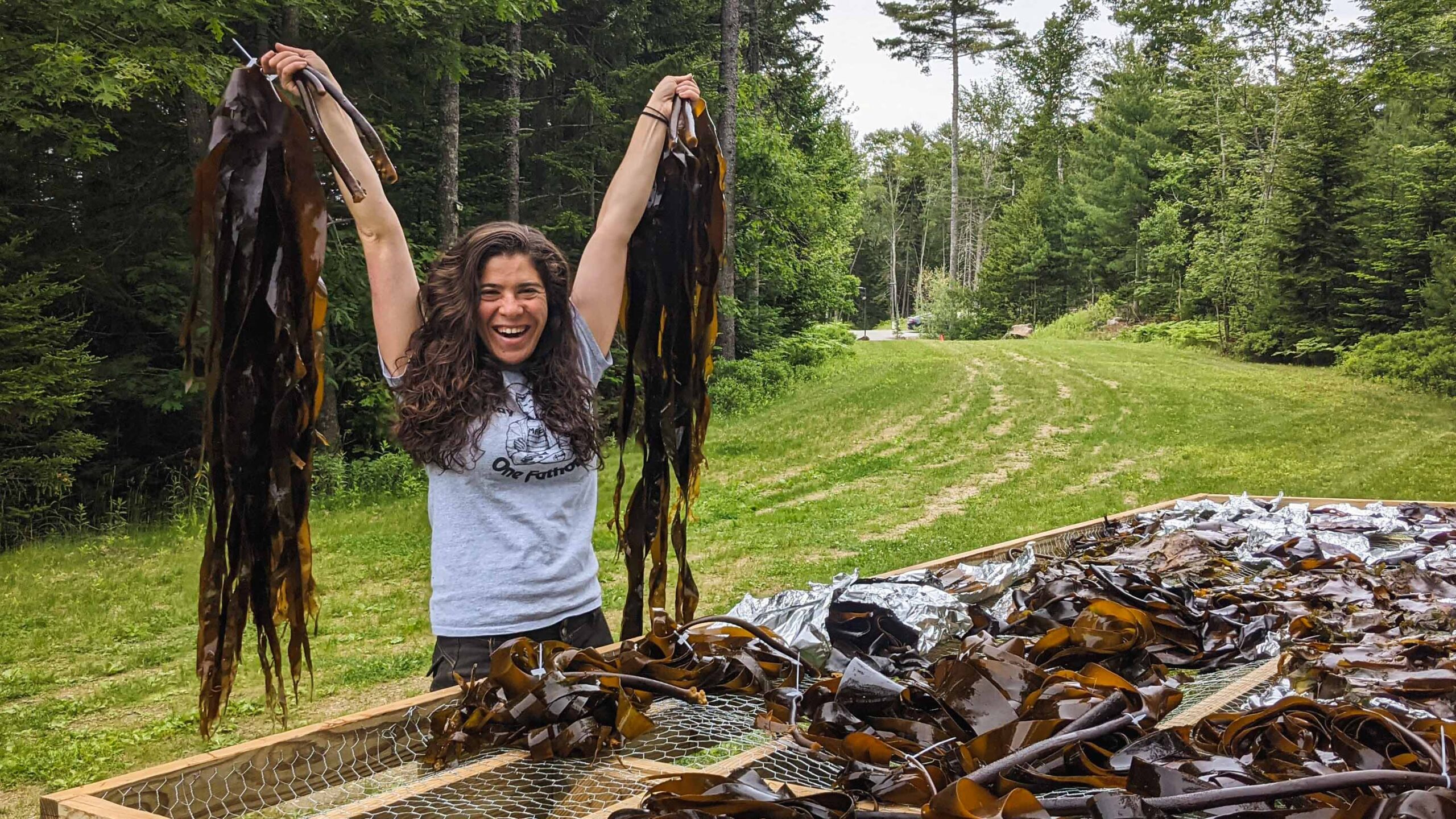
Studying the Kelp Populations in the Gulf of Maine with Rene Francolini
By Caty DuDevoir, Maine EPSCoR Media Intern
Kelp forests and the kelp aquaculture industry are becoming increasingly important to Maine’s working waterfront. Studying the relationship between kelp forests and climate change ensures that there can be a level of responsibility when farming kelp for aquaculture businesses. Rene Francolini, a University of Maine Marine Biology Ph.D. candidate based out of Bigelow Laboratory for Ocean Sciences, works on the NSF EPSCoR RII Track-1 funded Maine-eDNA project and currently studies “how the Gulf of Maine (GoM) kelp forests are responding to our changing climate.” Advised by Damian Brady (Associate Professor of Oceanography, Darling Marine Center) and Doug Rasher (Senior Research Scientist, Bigelow Laboratory for Ocean Sciences), Francolini and her team study what the kelp forests look like currently in order to understand the causal effects that climate change will ultimately have on the marine ecosystems.
Data from visual surveys, environmental DNA (eDNA), sensors in the water, specimen collection, and satellite datasets can be used to understand what the kelp forests along the coast of Maine currently look like and which organisms are relying on this ecosystem for their survival. The collection of eDNA helps researchers determine what species are present that may not be able to be visually identified through visual SCUBA surveys. This knowledge allows researchers to better understand the ecosystems that kelp forests support and can be accounted for when addressing the question of how changes in kelp forest populations may impact local ecosystems.
Alongside creating a comprehensive picture of what our kelp forest communities currently look like, Francolini aims to understand how genetically connected the populations of kelp forests are along the coast and what each population’s thermal limit is by collecting kelp samples and conducting thermal tolerance and population genetics work. Understanding kelp forests at this finer population scale has large implications for their future, as there is a chance that the kelp in the southern waters of Maine are more thermally tolerant than the kelp in the north. As the temperatures continue to shift in the GoM, these population differences can have a large effect on the response and existence of kelp forests in the future.
Due to lack of recent studies on kelp populations in the GoM, research like Francolini’s has become increasingly important as Maine tries to maintain the ecological health of its marine ecosystems and adapt to the effects of climate change. Substantial research on kelp forests has been done along the European and California coastlines, but a majority of past studies in the GoM occurred in the 1980s and early 2000s. While the prior research is vital to understanding the ecology of the GoM in a historical context, Francolini recognizes the need to look towards the future and how these scientific questions and concerns can be applied to Maine’s growing aquaculture industry. In regards to her research, Francolini acknowledges the importance to, “make it even more informative for aquaculturists and policymakers on how to intelligently move forward in the aquaculture business while maintaining ecological health and diversity.”
Kelp and kelp farming holds exciting potential for researchers, fishermen, aquaculturists, food service, and other components of Maine’s working waterfront, and as they become a larger topic of discussion, “taking the time to truly understand what we are working with and what is in our natural environment is really important. We have the opportunity to enter a newer industry with a lot of scientific knowledge.” With scientific understanding, Maine can avoid the exploitation of the kelp forests in the GoM. Entering the industry with stewardship in mind will ultimately help us preserve the resources in Maine waters. As the conditions of the GoM change, understanding what effects this will have on the kelp forests is vital in continuing to have a successful working Maine waterfront.
